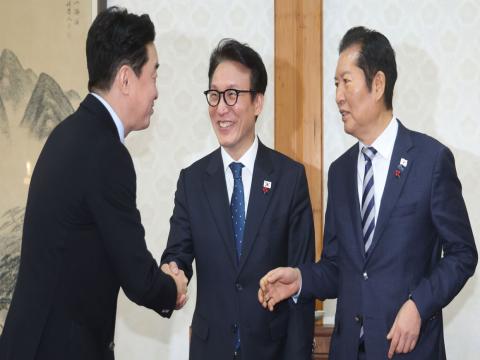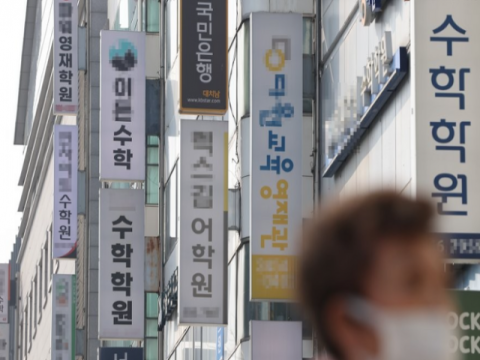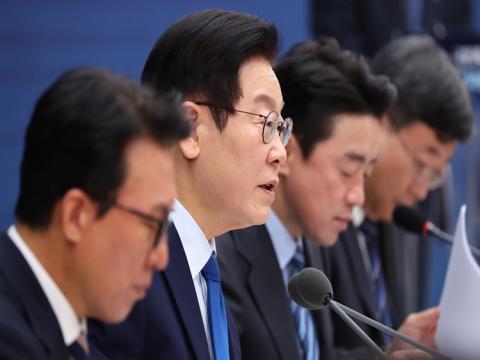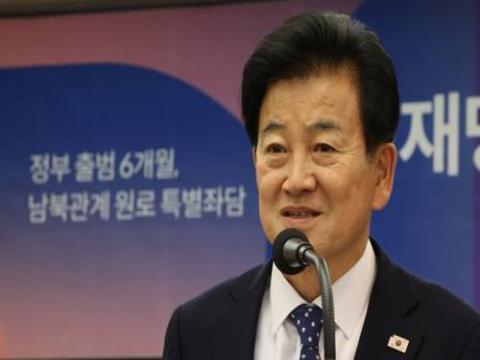크루그먼 "오바마, 과감하게 '뉴 뉴딜' 밀어붙여라"
"감세 등 부시의 보수 이데올로기 일축하고 진보정책 펴라"
크루그먼은 7일(현지시간) <뉴욕타임스(NYT)>에 기고한 '오바마 아젠다'란 글을 통해 "미국의 첫 흑인 대통령 당선에 감동을 하지 않거나 눈물이 나오지 않았고 국가를 자랑스럽게 생각하지 않았다면 당신에게는 뭔가 문제가 있는 것"이라며 오바마 시대 개막의 의미를 밝혔다.
그는 이번 선거가 기존정책의 전환점임을 강조한 뒤 "버락 오바마가 새로운 차원의 진보적 정책을 정말 펼 수 있을 것인가"라는 질문을 던진 뒤 "그는 할 수 있다"고 단언했다.
그는 오바마 당선 이후 많은 논평가들이 미국은 아직 보수적인 국가여서 민주당이 진보적인 방향으로 움직일 경우 유권자들이 이를 비난할 것이며, 금융.경제 위기가 건강보험 개혁 조치 등에 나설 여력이 없게 만들고 있다는 이유 등을 들어 오바마에게 작게 생각하라고 촉구하고 있지만, 오바마는 그런 조언을 무시해야 한다고 주장했다.
그는 이번 선거 결과를 "진보적인 철학의 승리"로 규정한 뒤, 오바마가 선거기간중 부유층에 대한 증세를 통해 건강보험을 확대하고 중산층의 세금을 줄여겠다고 공약했음을 강조한 뒤 이를 존 매케인 공화당 후보는 "사회주의자"라고 비난한 대목을 상기시켰다.
그는 이어 "내년에 재정적자가 1조달러가 될지도 모르는 경제 위기 상황에서 이런 진보적 현안의 시행이 뒷받침될 수 있겠느냐는 주장들이 나오지만, 경제학의 기본 교과서에도 어려운 시기에 한시적인 재정적자는 O.K.라고 나와있다"며 오바마에게 소신대로 공약을 밀어붙일 것을 주문했다.
그는 "오히려 경제위기에 대응하는 것 자체가 진보적 현안들을 진전시키는 기회가 될 수 있다"며 "위기때 건강보험과 실업자에게 혜택을 확대함으로써 가장 도움을 필요로 하는 사람을 지원하는 것이 도덕적으로 맞는 일이고, 이것이 자본소득에 대한 세금을 낮추는 것보다 경기부양을 위해서도 훨씬 효과적인 조치"라고 강조했다.
그는 특히 오바마에게 부시 정권의 "경기침체? 경제는 도움을 필요로 한다-부자들의 세금을 깎아주자! 경기회복? 부자들이 더 열심히 하도록 하기 위해 또 세금을 깎아주자"는 식의 보수 이데올로기에서 벗어날 것을 주문했다.
오바마 공약을 "뉴 뉴딜"이라고 명명한 폴 크루그먼은 오바마에게 "아무 것도 하지 않는 대통령이 돼야 한다"고 겁을 주는 사람들의 얘기를 듣지 말아야 한다며 "오바마가 두려워해야 할 것은 '두려움' 그 자체"라는 조언으로, 거듭 오바마에게 소신있는 진보적 국정운영을 주문했다.
다음은 폴 크루그먼의 글 전문.
The Obama Agenda
Tuesday, Nov. 4, 2008, is a date that will live in fame (the opposite of infamy) forever. If the election of our first African-American president didn’t stir you, if it didn’t leave you teary-eyed and proud of your country, there’s something wrong with you.
But will the election also mark a turning point in the actual substance of policy? Can Barack Obama really usher in a new era of progressive policies? Yes, he can.
Right now, many commentators are urging Mr. Obama to think small. Some make the case on political grounds: America, they say, is still a conservative country, and voters will punish Democrats if they move to the left. Others say that the financial and economic crisis leaves no room for action on, say, health care reform.
Let’s hope that Mr. Obama has the good sense to ignore this advice.
About the political argument: Anyone who doubts that we’ve had a major political realignment should look at what’s happened to Congress. After the 2004 election, there were many declarations that we’d entered a long-term, perhaps permanent era of Republican dominance. Since then, Democrats have won back-to-back victories, picking up at least 12 Senate seats and more than 50 House seats. They now have bigger majorities in both houses than the G.O.P. ever achieved in its 12-year reign.
Bear in mind, also, that this year’s presidential election was a clear referendum on political philosophies — and the progressive philosophy won.
Maybe the best way to highlight the importance of that fact is to contrast this year’s campaign with what happened four years ago. In 2004, President Bush concealed his real agenda. He basically ran as the nation’s defender against gay married terrorists, leaving even his supporters nonplussed when he announced, soon after the election was over, that his first priority was Social Security privatization. That wasn’t what people thought they had been voting for, and the privatization campaign quickly devolved from juggernaut to farce.
This year, however, Mr. Obama ran on a platform of guaranteed health care and tax breaks for the middle class, paid for with higher taxes on the affluent. John McCain denounced his opponent as a socialist and a “redistributor,” but America voted for him anyway. That’s a real mandate.
What about the argument that the economic crisis will make a progressive agenda unaffordable?
Well, there’s no question that fighting the crisis will cost a lot of money. Rescuing the financial system will probably require large outlays beyond the funds already disbursed. And on top of that, we badly need a program of increased government spending to support output and employment. Could next year’s federal budget deficit reach $1 trillion? Yes.
But standard textbook economics says that it’s O.K., in fact appropriate, to run temporary deficits in the face of a depressed economy. Meanwhile, one or two years of red ink, while it would add modestly to future federal interest expenses, shouldn’t stand in the way of a health care plan that, even if quickly enacted into law, probably wouldn’t take effect until 2011.
Beyond that, the response to the economic crisis is, in itself, a chance to advance the progressive agenda.
Now, the Obama administration shouldn’t emulate the Bush administration’s habit of turning anything and everything into an argument for its preferred policies. (Recession? The economy needs help — let’s cut taxes on rich people! Recovery? Tax cuts for rich people work — let’s do some more!)
But it would be fair for the new administration to point out how conservative ideology, the belief that greed is always good, helped create this crisis. What F.D.R. said in his second inaugural address — “We have always known that heedless self-interest was bad morals; we know now that it is bad economics” — has never rung truer.
And right now happens to be one of those times when the converse is also true, and good morals are good economics. Helping the neediest in a time of crisis, through expanded health and unemployment benefits, is the morally right thing to do; it’s also a far more effective form of economic stimulus than cutting the capital gains tax. Providing aid to beleaguered state and local governments, so that they can sustain essential public services, is important for those who depend on those services; it’s also a way to avoid job losses and limit the depth of the economy’s slump.
So a serious progressive agenda — call it a new New Deal — isn’t just economically possible, it’s exactly what the economy needs.
The bottom line, then, is that Barack Obama shouldn’t listen to the people trying to scare him into being a do-nothing president. He has the political mandate; he has good economics on his side. You might say that the only thing he has to fear is fear itself.
<저작권자ⓒ뷰스앤뉴스. 무단전재-재배포금지>








